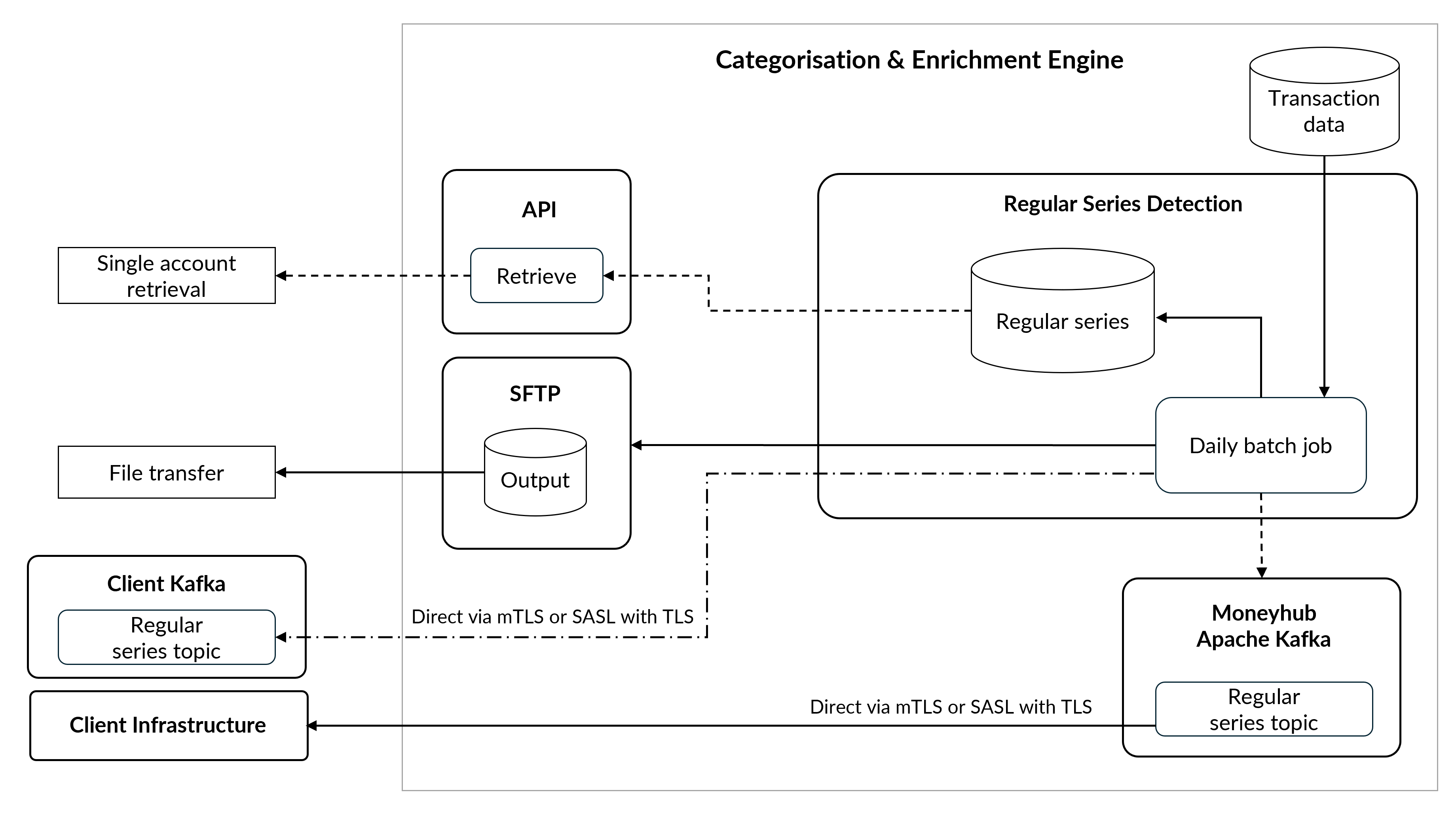Architecture
Detects both income and payments that occur at a regular interval on an account. The engine detects the following recurring patterns: weekly, fortnightly, twice monthly, four weekly, monthly, quarterly and yearly, though some slight deviation is permitted. For example, if an income series is paid on the last working day of the month, the engine will recognise this as monthly series, despite the actual dates varying slightly. Examples of income series include salary, benefit payments and regular transfers from another account. Examples of payment series include mortgages, rent, utility bills and regular transfers to another account.
The general mode of operation for regular series detection is a daily batch job that runs on a database of historical transactions previously fed to the Data Enrichment Engine for enrichment. Daily detection is sufficient because weekly detection is the lowest frequency. For convenience, an API is also provided, allowing you to retrieve the regular series for a particular account in a synchronous request-response call. However, this feature is intended for occasional use only.
At least 3 months of consecutive transaction history are required to make predictions, and only regular series that are still active are returned. The predicted date of the next transaction in the series must be greater than 14 days before the last date a transaction was observed on the account.

The architecture of the transaction categorisation and enrichment component of Moneyhub's Categorisation & Enrichment Engine
Updated 6 months ago
